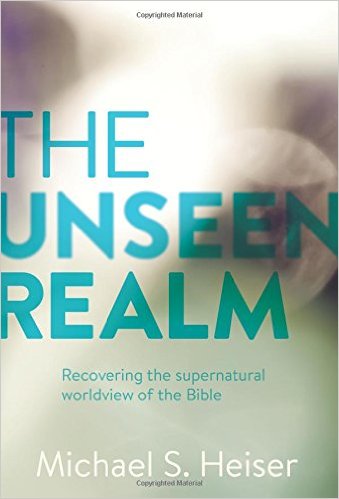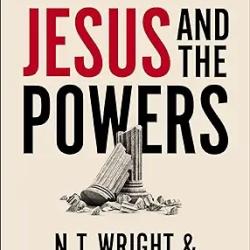BEN: In various places in the OT, seeing the idea and presence of the divine council seems a no brainer. But I must confess I have a hard time seeing it in the Garden in Genesis. God’s appearance in the Garden after the sin, doesn’t really tell us what things were like before then, and the angels who guard the back door when Adam and Eve are expelled, do not seem to be in evidence before then. And to press one more point, nothing in Gen. 1-3 suggests that a mountain is in view, only a garden here. I think that the later Ezekiel reading of Eden has to do with the prophet suggesting Eden was like a high place, where the deity could be found.
MIKE: From the perspective of Semitists and ancient Near Eastern specialists, my views here reflect the consensus. The divine abode (and hence, the place of council) is described in ancient Near Eastern material as both / either a garden or a mountain. There’s no need for all the metaphors to coexist in every passage. Eden is described as both by Ezekiel, though (Ezek 28:13-16). Eden was of course where God could be found, but where God is so is his host. There was more than ritual involved in Eden (borrowing the “high place” idea from you); there was dwelling—and rulership.
We also know that the council existed prior to the creation of humankind (Job 38:7-8) and was the audience for God’s declaration of his intention to create humanity (Gen 1:26). I of course discuss the plurality of that reference (“let us create”) in the book. God isn’t speaking to the other members of the Trinity for several reasons, but I think the one that people can understand the easiest is that, in orthodox Trinitarianism, all three members are, and must be, co-eternal. Consequently, it makes no sense for God to announce something to the other two. They’d already know and would already have reached the same decision! I’d suggest God was speaking to his council in the garden he created when he acted to create humanity. I don’t think it’s unreasonable to conclude that an ancient Israelite would have seen Eden as God’s dwelling place and then presumed where God was, so was his council-entourage.
BEN: Let’s talk terminology. You spend an awful lot of the time in this book dealing with the basic meaning of terms like malak/angellos ‘sons of God’ etc. Understandably so. But you seem often to want to take a very functional view of these terms, rather than an ontological one. And yet you turn around with the malak Yahweh and wanted to argue it’s a pre-incarnate manifestation of Jesus, as you call him, the visible Yahweh. I have doubts about this at both ends of the spectrum. On the one, it seems clear enough to me from Heb. 1-2 that the author of Hebrews thinks the term ‘angel’ has ontological significance, specifying supernatural beings in a category that God’s Son should never be slotted into. He was never an angel, and shouldn’t be confused with angels who are lesser beings than God’s divine Son. I quite agree with your argument that we need to be careful of over-reading the OT in light of the NT, but I would say that that’s also true the other way around, and the author of Hebrews clearly thinks of angels as not in the same league as the Son ever. I am want to say— there was not an incarnation of Jesus before the incarnation. His involvement in OT times was not as the angel of the Lord, but rather as God’s Wisdom (not a material being) which is the way Paul reads the matter in 1 Cor. 10, alluding to ideas found in Wis. Sol. 11 and elsewhere.
MIKE: You’re correct on my functional take for terms like angelos/mal’ak. I view them as job descriptions, not ontological statements—for the lesser elohim. I’d say that the angel of Yahweh was the visible Yahweh, as you note. That visible Yahweh gets identified with Jesus in various turns in the NT. I’m okay with terms like “pre-incarnate Christ” because of the “pre-incarnate” part. I don’t think the angel of Yahweh was Jesus of Nazareth before there was Jesus of Nazareth, but I do identify Jesus with that angel because the New Testament writers do. I think for more precision we should say something like, “the angel of Yahweh was the second person of the Trinity embodied, which was not the incarnation, though the effect is sort of like the incarnation.” Embodiment and incarnation are two related, but different, things. One involves, for example, passing through the birth canal of a woman; the other doesn’t.
Back to the OT … I think the “angel” in “angel of Yahweh” is still functional (this angel “works for Yahweh”), but it’s also an ontological statement for that angel (that angel was Yahweh). That’s the essence (pardon the pun) of Exod 23:20-23 (“my name is in him [that angel]” is an ontological statement). The Son of Hebrews 1-2 was Yahweh. He was never one of the angels (lesser elohim). Part of the problem here is that, in the Hellenistic era, angelos became like Hebrew elohim –the elastic, umbrella term for “spiritual being.” Hellenistic terminology didn’t precisely map over to Semitic terminology and thinking. And so angelos came to signify “any spirit being who was a good guy,” vs. (in NT usage) daimon / daimonion for the bad guys).














